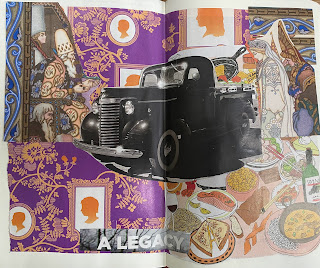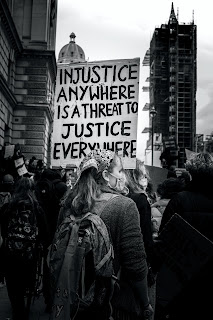Day 93 – Sustainability and radical relationality
Day
93 – Sustainability and radical relationality 
Photo by Victor on Unsplash
Human societies are guided by stories people tell one another. The narrative that has brought us to the present situation is that of progress made possible by economic growth and advances in technology. According to this tale, humanity is steadily moving toward a brighter future. When it comes to material prosperity, particularly in certain parts of the world, this is not a mere fairytale. However, in many other aspects, the story has lost its credibility, as the price of the so-called progress has proven to be far too high. (Helne, 2021, p. 220)
I read a great article today called, Well-being for a better world: The contribution of a radically relational and nature-inclusive conception of well-being to the sustainability transformation (Helne, 2021). In it, Helne, a Finnish social policy maker, proposes that we question our conceptions of the “good life” and ask how our definitions of well-being (the good life) can become more sustainable for everyone and the planet as a whole. Helne is asking us to consider our sense that “human beings” are more important than anything else on the planet.
This notion of “radical relationality” can be in part traced back to our ideas about social construction. Gergen (2009) writes:
To approach human beings exclusively as separate or bounded units—
whether individual selves, communities, political parties, nations, or
religions— is to threaten our future well-being. To understand the world in
which we live as constituted by independent species, forms, types, or entities
is to threaten the well-being of the planet. (p. 396)
We are interdependent. We must conceptualize our experiences and lives as ultimately impacting not only ourselves, but others, and the very earth itself. Schuhmann (2016) writes in the abstract to her article, “Counseling in a complex world: Advancing relational well-being:”
In a globalized world, people’s attempts at living a good life interfere with one another in complex ways. In particular, tension and conflict are inevitable. This confronts counselors/therapists with the ethical question of how to take into account (global) interdependence and relational complexity.
But what does this look like in clinical practice?
Counselors who work from a moral vision of good relational being would encourage their
clients to explore a variety of different readings of their original stories. They would support a client’s growth in the sense of a relational rather than an inner process, as described earlier. In particular, counselors would encourage clients to explore potential or actual perspectives of the people involved in relational contexts appearing in their stories. Here, it is the counselor’s task to (help) identify salient perspectives of others and support these as legitimate views—especially when the client dismisses these as irrelevant or simply wrong. In a globalized world, in which the client is interconnected with others on a global scale, this requires a global view of the counselor that includes geographically, socially, or culturally distant others. Exploring perspectives of others on situations and events in the original story of the client may provide powerful “innovative
moments” (Goncalves,Matos,&Santos, 2009), leading to new stories that are more likely to invite productive coordination. Here, counselor and client may use their imagination and draw from the reservoirs of potentials for being that they carry—trying out less obvious potentials or combining different potentials—in order to explore new understandings that involve multiple perspectives. We might also think of inviting persons involved in salient events into the counseling setting to tell their stories of the event. In a globalizing world, characterized by relational complexity, creative counseling may be needed to support clients in exploring modes of being that promote
relational well-being. (emphasis not in the original, Schuhmann, 2016, p. 327)
I hope to come back to these ideas. I think they have a lot to offer us as we reconceptualize the work of “therapy” and the ways we approach those with whom we work.
Gergen, K. J. (2009). Relational being: Beyond self and community, Oxford University Press, Inc.
Helne, T. (2021). Well-being for a better world: The contribution of a radically relational and nature-inclusive conception of well-being to the sustainability transformation. Sustainability: Science, Practice & Policy, 17(1), 220–230. https://doi.org/10.1080/15487733.2021.1930716
Schuhmann, C. (2016). Counseling in a complex world: Advancing relational well-being. Journal of constructivist psychology, 29(3), 318–330.



Comments